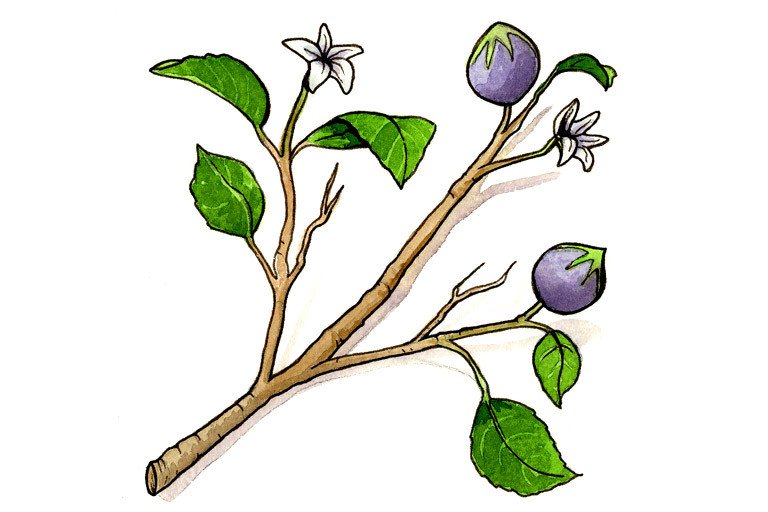
Common Names
- Gum guggal
- Gum guggulu
- Guggal
For Patients & Caregivers
Tell your healthcare providers about any dietary supplements you’re taking, such as herbs, vitamins, minerals, and natural or home remedies. This will help them manage your care and keep you safe.
Studies on whether guggul can lower cholesterol levels are mixed.
Guggul is a resin extract that has been used in Ayurvedic medicine for centuries to treat various conditions, but studies are limited.
In lab experiments, a chemical in guggul called guggulsterone affects cholesterol production by the liver. Mice fed guggul had reduced cholesterol levels compared with mice on normal diets.
In humans however, studies on whether guggul can lower cholesterol levels are mixed. One study suggests it may actually raise cholesterol levels. Therefore, additional study is needed to determine whether guggul is safe and effective.
- To treat acne
Evidence is lacking to support this claim for guggul alone. See the Ayurveda monograph for more information on the treatment of acne. - To treat arthritis
Evidence is lacking to support this claim. - To treat hemorrhoids
Evidence is lacking to support this claim. - To reduce high cholesterol
Studies on whether guggul can lower cholesterol levels are mixed. - To treat urinary tract disorders
Evidence is lacking to support this claim. - To lose weight
Evidence is lacking to support this claim.
- Headache
- Mild nausea
- Belching
- Hiccups
- Loose stools
- Rash
Case reports
- Allergic reactions: Contact dermatitis related to guggul in slimming and anticellulite creams.
- Elevated liver enzymes: In a 63-year old woman after using an over-the-counter lipid-lowering product for 6 months that contained guggulsterol and red yeast rice extract. Her symptoms normalized after the product was discontinued.
- Liver failure requiring transplant: In a healthy woman who took a dietary supplement containing usnic acid, green tea, and guggul tree extract. Although usnic acid was considered the main cause, its effects could have been amplified by the other ingredients.
Do Not Take if:
- You are taking CYP3A4 substrate drugs: Guggul may make these medications less effective.
For Healthcare Professionals
Guggul is derived from the resin of a medicinal plant that has been used for thousands of years in Ayurveda. Extracts of the plant are traditionally used alone or in combination with other botanicals to treat various disorders including rheumatism, arthritis, neurological diseases, hemorrhoids, urinary disorders, and skin diseases.
Preclinical studies suggest that the compound guggulsterone has antiangiogenic and antitumor properties (4) (5) (6) (7). In an animal study, guggul had cardioprotective effects (16).
Studies in humans are limited, but suggest guggul may be effective for hypercholesterolemia (1) (2) (11). However, other trials indicate uncertain benefit (20) or that guggul may actually raise cholesterol levels (3). It also showed no benefit when taken with Triphala, an Ayurvedic formulation (21). Additional research is needed to determine safety and efficacy.
- Acne
- Arthritis
- Hemorrhoids
- High cholesterol
- Urinary tract disorders
- Weight loss
In vitro, guggulsterone affected biosynthesis of cholesterol in the liver (2). Cholesterol-lowering activity in mice was attributed to inhibition of FXR, a nuclear hormone receptor that is activated by bile acids. FXR mediates a negative feedback loop to decrease bile acid production by the liver. This loop is an important component of cholesterol metabolism regulation (10). In humans, hypolipidemic outcomes may be better for those with a higher capacity to metabolize Z-guggulsterone with moderate carboxylesterase induction (19).
In tumor cells, guggulsterone induced apoptosis by activating JNK (5) and repressing Akt signaling (6).
Guggulsterone activates nuclear receptors such as estrogen receptor alpha, pregnane X receptor, and progesterone receptor and may induce CYP3A genes (8).
Headache, mild nausea, eructation, hiccups, and loose stools; hypersensitivity rash (2) (3) (20) (21)
Case reports
- Allergic reactions: Contact dermatitis attributed to guggul in slimming and anticellulite creams (13) (14).
- Severe hypertransaminasemia: In a 63-year old woman after using an over-the-counter lipid-lowering product for 6 months that contained guggulsterol and red yeast rice extract. Symptoms resolved after product discontinuation (12).
- Acute hepatic failure requiring transplant: In a healthy woman who took a dietary supplement containing usnic acid, green tea, and guggul tree extract (15). Although usnic acid was considered the predominating factor, its effects could have been amplified by the other ingredients.
CYP3A4 substrates: Lab studies suggest that guggul induces CYP3A4 and may affect the intracellular concentration of drugs metabolized by this enzyme (8).